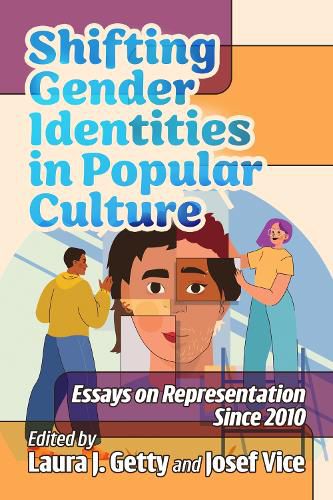Readings Newsletter
Become a Readings Member to make your shopping experience even easier.
Sign in or sign up for free!
You’re not far away from qualifying for FREE standard shipping within Australia
You’ve qualified for FREE standard shipping within Australia
The cart is loading…






Millions of people engage with various pop culture artifacts: from films, television shows, and young adult literature to beauty pageants, stand-up comedy, and role-playing games. This collection of 12 essays brings together a diverse selection of scholars who raise the important question of how various groups are represented in these narratives. Popular culture is a mirror. It allows us not only to see who and what we are, but it also has, in John Podhoretz's words, the "ability to alter, destroy, or praise" how we see and define ourselves. This public culture creates a framework of meaning for people to interpret and make sense of both their own and others' actions, values, and beliefs. This collection investigates the ways in which popular culture helps us understand the rapid and often dramatic societal changes going on around us, especially our society's current debate on gender roles and identity.
Representation is important and necessary, but this mirror is only useful if it reflects back true images of reality, rather than distorted images that stereotypes perpetuate. The representations of women and minorities covered in these essays explore the tension between the best--and the worst--that popular culture can offer to these debates.
$9.00 standard shipping within Australia
FREE standard shipping within Australia for orders over $100.00
Express & International shipping calculated at checkout
Millions of people engage with various pop culture artifacts: from films, television shows, and young adult literature to beauty pageants, stand-up comedy, and role-playing games. This collection of 12 essays brings together a diverse selection of scholars who raise the important question of how various groups are represented in these narratives. Popular culture is a mirror. It allows us not only to see who and what we are, but it also has, in John Podhoretz's words, the "ability to alter, destroy, or praise" how we see and define ourselves. This public culture creates a framework of meaning for people to interpret and make sense of both their own and others' actions, values, and beliefs. This collection investigates the ways in which popular culture helps us understand the rapid and often dramatic societal changes going on around us, especially our society's current debate on gender roles and identity.
Representation is important and necessary, but this mirror is only useful if it reflects back true images of reality, rather than distorted images that stereotypes perpetuate. The representations of women and minorities covered in these essays explore the tension between the best--and the worst--that popular culture can offer to these debates.